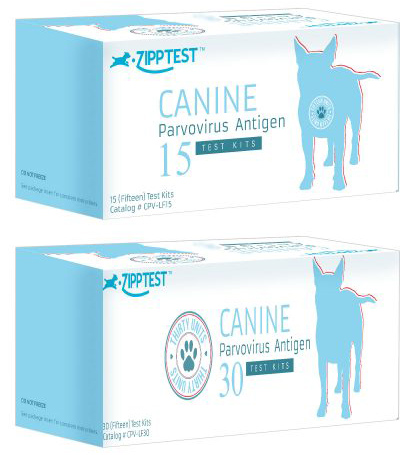
Disease Background Information
Canine parvovirus is a highly contagious virus that can affect all dogs, but unvaccinated dogs and puppies younger than four months old are the most at risk. Dogs that are ill from canine parvovirus infection are often said to have “parvo.” The virus affects dogs’ gastrointestinal tracts and is spread by direct dog-to-dog contact and contact with contaminated feces, environments, or people. The virus can also contaminate kennel surfaces, food and water bowls, collars and leashes, and the hands and clothing of people who handle infected dogs. It is resistant to heat, cold, humidity, and drying, and can survive in the environment for long periods of time. Even trace amounts of feces from an infected dog may harbor the virus and infect other dogs that come into the infected environment. The virus is readily transmitted from place to place on the hair or feet of dogs or via contaminated cages, shoes, or other objects. Some of the signs of parvovirus include lethargy; loss of appetite; abdominal pain and bloating; fever or low body temperature (hypothermia); vomiting; and severe, often bloody, diarrhea. Persistent vomiting and diarrhea can cause rapid dehydration, and damage to the intestines and immune system can cause septic shock.
Kit Contents:
- Test Devices: 15 or 30 individually packaged test devices
- Sample Dilution Buffer: 15 or 30 tubes containing 1 ml of sample dilution buffer with sodium azide as a preservative
- Transfer Pipettes: 15 or 30
- Collection Swabs: 15 or 30
- Sample Dilution Buffer: 15 or 30
- Instruction for use: 1
